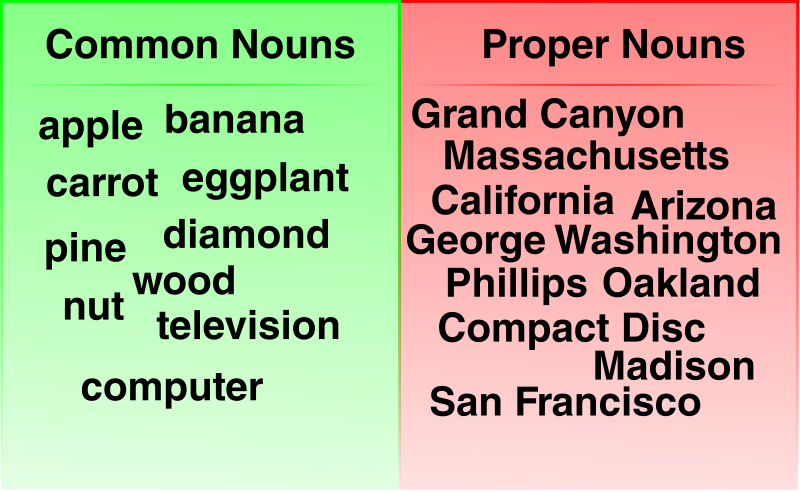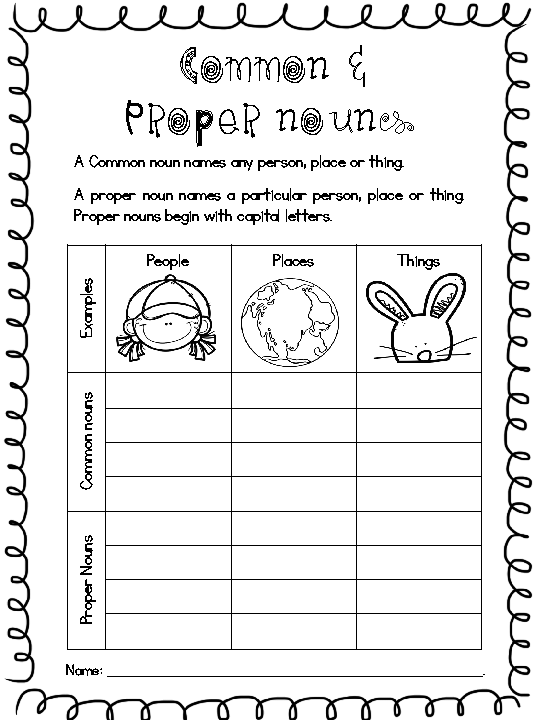In this lesson, you've seen the five main rules on how to make plural forms of nouns in Spanish. We also included a brief reminder about what this means for definite and indefinite articles in Spanish, as well as adjectives, at the beginning of the lesson. If you haven't seen our posts on these two topics, Definite and Indefinite Articles (coming soon!), and Adjectives in Spanish then take a look at those topics now. There is a pattern with words with an initial stressed /a/ sound, such as agua ("water"), that makes them seem ambiguous in gender, but they are not. Such words take the masculine article, both definite and indefinite , in the singular form; they also take the singular modifiers algún and ningún when those modifiers precede the nouns. Similar words include el alma / un alma ("soul"), el ala / un ala ("wing"), el águila / un águila ("eagle"), and el hacha / un hacha ("axe").
Still they are feminine and, as such, they take feminine modifiers in both singular and plural forms, and they take feminine articles in the plural form as in las aguas frías. My name is Jaklien Wotte, I am from The Netherlands. I studied for two weeks at iNMSOL in Granada in septembre 2009, I followed an intensive Spanish course, level A2. I spoke a little bit of Spanish, but I wanted to learn proper Spanish, make sentences, something that I wasn´t able to do yet. I was also very positive about the flexibility of the school . I followed partly private lessons, what also was a possibility.
Granada is of course, beside all of this, a extraordinary beautiful and living city. The school organised activities every night, like a tapas tour, a tour in the Albaícin or a tour to the mountains, Alpujarras, in the weekends. Sometimes the school organised special classnights, were for example the streetlanguage of Andalusia and films were spoken. My Spanish language progressed a lot, exactly what I wanted. I had a splendid time and I would return to this school for another course. I can tell you that it was really good experience.
I wish I had been able to stay there much longer. Being in Spain, in Granada makes you speak Spanish from the first moment you are there. I took intensive Spanish courses four hours a day. The first two hours were based on speaking, and the other two were based on grammar.
However, you can experience the best Spanish learning in the street, with friends in and out school. I shared a flat with two other friends from other countries and we communicated in Spanish most of the time. They were really nice people, friendly and helpful all the time. Our flat was in the city center and ten minutes to the school.
We always encouraged each other to speak Spanish. We met after school, organized short trips in and out town, went dancing after school. In Granada you can always find something to do.
There are historical places like Alhambra and the Cathedral. If you are interested in flamenco, you can enjoy Sacramonte. You can go out to tapas bars, where you buy a drink and get free starters.
Actually, you can walk everywhere or take the bus. If you like travelling, you can easily go to other cities at weekends. You can take a coach to Cordoba, Seville etc. at the bus station or take a train. The school organizes excursions to those places at weekends and on... Note that se is also used for the formal "you" (usted/ustedes).
Now let's say that same sentence using indirect object pronouns. In English, it would be "I bought pizza for him." In Spanish, that would be Le compré pizza. Like the direct object pronouns, indirect object pronouns come before the verb, too.
Los sustantivos propiosor Spanish proper nouns are the ones we use to name things or people such as Ana, Carlos, México, Brasil, Toyota and so on . What makes them easy to differentiate from common nouns is the fact tht proper nouns will always begin with capital letter as you can see in the sentences in the list. You've still got your proper nouns (María), abstract nouns , countable nouns (el libro – los libros) and collective nouns (panal, archipiélago).
This is what you are going to master in the next few minutes of reading. I found iNMSOL through the website of Cervantes and lots of times I've been in Granada via iNMSOL. For the next times lots of my friends went to Granada and they liked very much both of them iNMSOL and Granada.
Especially in summer season the school is mostly very crowded and the age range differs from... But everytime I found a friend at my age and I had lots of friends and we still see each other for years.. For the first 2 visits I 've stayed with a spanish family and I liked them. The family was very warm, the cooks are fantastic and the house was very clear.
For the other visits I've stayed in a flat with students and they were great too. We were getting on well, at nights we went out together, we had traveled together and seeing each other too. The school is doing a leveling exam to define your language level and they put you a convenient class based on that exam. If the students' age is very small, they put them within a separate class with their own teachers.
Every day of the week they arrange another activity. City trips, tapas route, cinema day, musical activity, history of spain etc. The teachers are fantastic and they are very good at communicating. I've joined every one when I was able to and don't miss them. In the weekend Saturday and Sunday they have trips to another cities.
Sevilla, Cordoba, Costa Tropical, Alpujarras, Cadiz, even Morocco. These are with fee.But cheaper than the other tours.The guides graduated from Historical sciences and they... Spanish direct object pronouns like me, te, lo, and la are an essential part to a Spanish speakers vocabulary so it's important that you fully grasp this concept. Like English nouns, most Spanish nouns have singular and plural forms.
In addition, Spanish nouns referring to people and animals often have different masculine and feminine forms, which means that these nouns can have up to four forms – learn more. Nouns are an all-star team of words and always have a player ready to step up to the plate, no matter the challenge. Common nouns, proper nouns, abstract nouns, and concrete nouns are our go-to nouns but there are many types of nouns ready to get in the game. To learn the difference between all these nouns, use this guide to link to in-depth articles about each type of noun. The Spanish language has nouns that express concrete objects, groups and classes of objects, qualities, feelings and other abstractions. All nouns have a conventional grammatical gender.
However, the division between uncountable and countable nouns is more ambiguous than in English. This is what makes learning masculine and feminine Spanish nouns easier than other romance languages such as French. Plural nouns, unlike collective nouns, require plural verbs. Many English plural nouns can be formed by adding -s or -es to the singular form, although there are many exceptions. A noun is a word that names something, such as a person, place, thing, or idea. In a sentence, nouns can play the role of subject, direct object, indirect object, subject complement, object complement, appositive, or adjective.
I have met a lot of sympathic people again, teachers and students, in a nice environment. I also worked a lot and I think that I made a lot of progress. I started with speaking a little bit of Spanish for the first time. I will come back another day to finish where I started.
The city was very well with a lot of history and culture. I visited the Alhambra en Albaícin and both were magnificent. I also went to Sierra Nevada, I skied a little but, but the weather was bad. I have to return another time to see the mountaint with the sun and the blue sky. I also went to Malaga and Marbella in the weekends with my car and it was a marvelous weekend.
I visited the old town of Marbella and the old town of Mijas aswell. I especially loved the nightlife and Tapasbars of Granada. I drank Spanish beer and eated tapas, ham, cheese, tortillas, pealles etc. Notice that the direct object pronoun goes before the verb, though. In most situations, Spanish has the same sentence structure as English (Subject-Verb-Object).
But when it comes to direct object pronouns, it's Subject-Direct Object Pronoun-Verb. Once you do this, you will be a happier Spanish student because of it. I'm completely confident you will be speaking with Spanish direct object pronouns in no time. Knowing the gender of a noun allows you to describe it using adjectives correctly and also use the correct articles when you have to.
By far, the best way to determine the gender of a noun is to look it up in a dictionary. If you don't have a dictionary available, there are a few general observations you can use below, but these are not rules! They are just clues for when you don't have a dictionary.
So let's talk about some general ways to recognize if a noun is masculine or feminine. The unusual thing about words that end in–istais that they will be used for both males and females. The article will indicate the gender of the person the noun represents. Notice that it will seem strange to use a word ending in–ato refer to a male. If you make a note of the nouns that break these general rules when you learn them, you'll avoid a lot of mistakes later.
If the verb requires a preposition (like "talked with" or "jumped on"), the direct object pronoun stays in place; however, it requires a different pronoun in this case. See the section below on prepositional object pronouns for more. Luckily, pronoun forms are very closely related, so it's usually easy to figure out what they mean when reading or listening to Spanish.
On the flip side, one letter or accent mark can completely change the meaning, meaning their relatedness can lead to some difficulty when speaking or writing Spanish. Apluralnoun refers to more than one of something. Many singular nouns just need an S added at the end to make them plural (e.g.,bee becomes bees). For some nouns that already end with an S, you may need to add -es to the end to make their plural forms (e.g.,classes and buses). Some singular nouns also change spelling when made plural (e.g. countries and babies).
It looks like you're ready to dive headfirst into your journey to Spanish fluency—and learning sustantivos is the perfect place to start. Just like in every other language, a noun refers to a person, place, thing, or idea. It can function as a subject, object of a verb, or an object of a preposition. Nouns in Spanish are fun and fairly relaxing to learn, but be careful! They have a few tricks hiding up their sleeves. Common nouns refer to general things , and proper nouns refer to a specific thing .
Nouns can also be plural or singular, depending on how many there are, and countable or uncountable, depending on how their plural form is used. The first thing I have to say is that the staff at iNMSOL is some of the friendliest people I have ever met. They will help you with whatever difficulties or problems you may have.
Moreover, if you choose to join some of the trips they arrange, they have knowledge of mostly whatever you need to know. The staff have been wonderful in giving tips for how to enjoy this fantastic city even more. When it comes to the learning I don't have much to say other than I can assure you that you will learn spanish. The more important thing is what you get for 'free'.
If you choose to live with a family during the stay you get to see how the locals does it. Also, if you are staying here for a long time, it is nice to have an acommodation while searching for your own place to stay. If you want much value for your money and have a really nice time, I think iNMSOL is a really good alternative, and I don't think you'll regret it if you choose to go there. Academic English can be said to be non-emotional. However, when texts written by speakers with different mother tongues are analysed, language variation can be observed in the way some constructions are used. The main objective of this analysis is to apply the principles of Construction Grammar to language variation.
Further objectives are to detect variation in the use of modal constructions and to study their functions in the specific field of engineering. For this purpose, a corpus of one hundred academic papers written in English by Spanish writers and by native English-speaking writers was compiled. The constructions made up of modal verb + infinitive that indicate probability were then identified. Examples of this English construction used in different ways to express the same meaning by researchers with different mother tongues were discussed. Finally, results were commented on and conclusions were drawn.



























